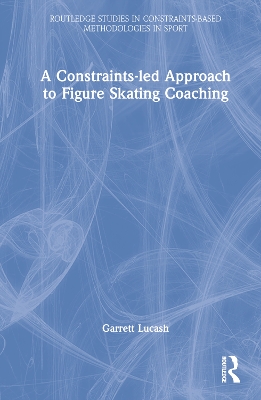Routledge Studies in Constraints-Based Methodologies in Sport
1 total work
Motor skill acquisition and athlete development practices are rapidly evolving. Positioned at the forefront of this evolution, the constraints-led approach encourages practitioners to consider the athlete as a whole person, with unique traits, abilities, and capacities. Accordingly, an athlete’s competitive success lies in the practitioner’s ability to adapt programming to the unique needs of each athlete and to facilitate the athlete-environment relationship.
A Constraints-led Approach to Figure Skating Coaching applies contemporary motor skill acquisition and athlete development practices to figure skating. The book encourages coaches to think about why they coach, the athletes they want to support, and the goals they want their program to achieve. It informs coaches how to transform these core considerations into the driving inspiration for their daily coaching practices including assessment methods, the coach-athlete relationship, practice structure, competition preparation, and conceptions of technique. The lessons here are founded on the constraints-led approach. They are accessible and personal, yet broadly inclusive to the global sports programming market.
The book is written through a ‘conversive’ voice and so, is accessible to a broad audience interested in athlete development and programming such as coaches, athletes and parents. At the same time, academics and students in the areas of sport coaching, biomechanics, motor skill acquisition, strength & conditioning, and related disciplines will find interest in the insights provided from this underrepresented niche in sports.
